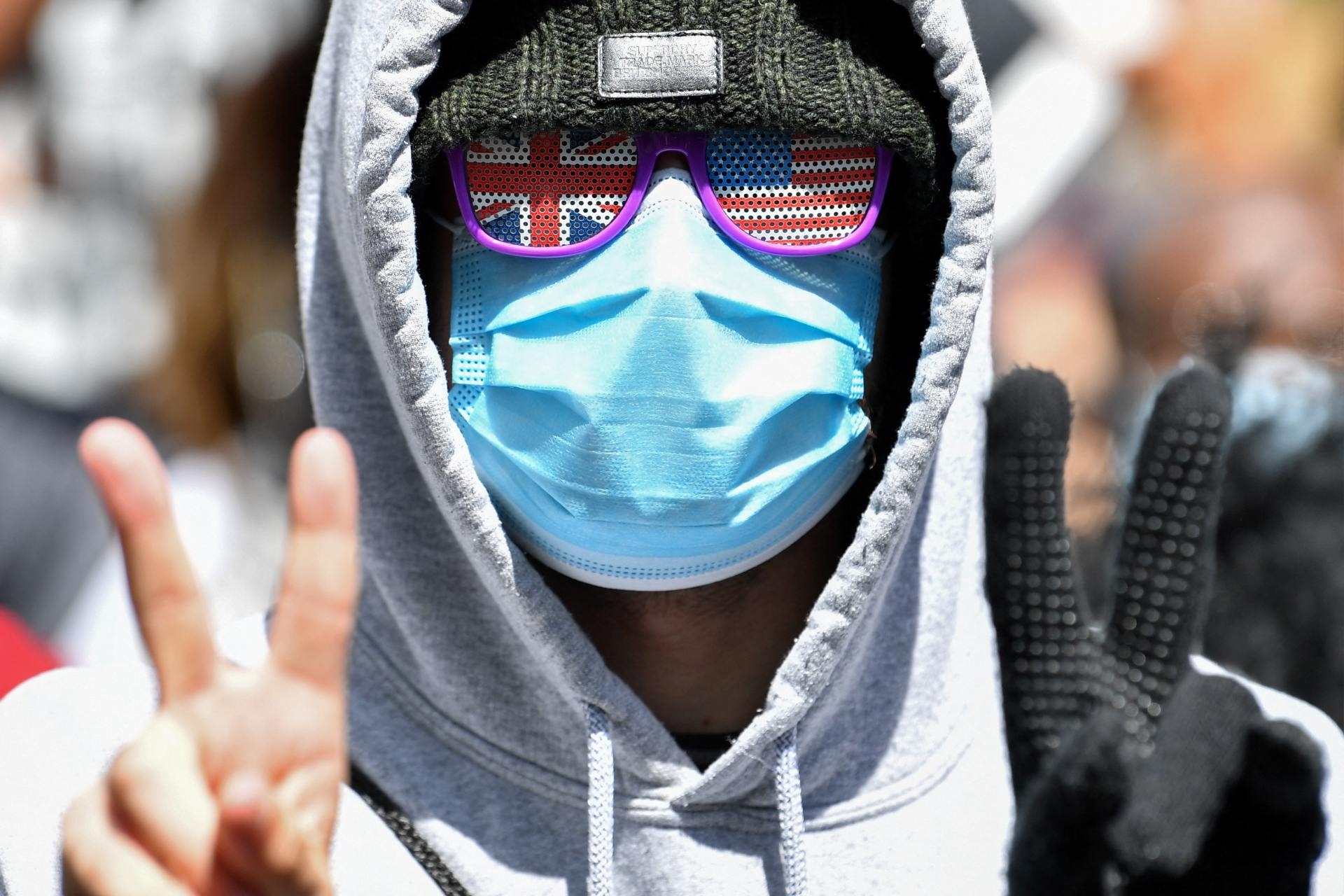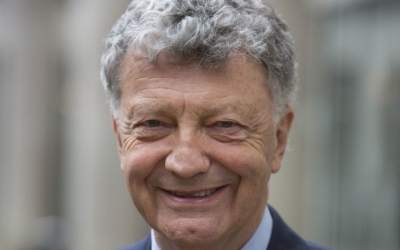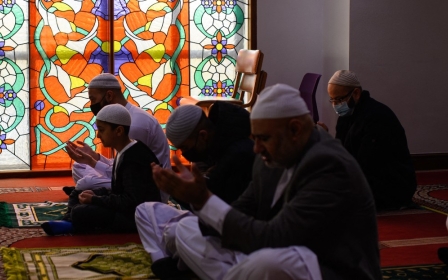UK Prevent strategy harmful to democracy and children, reports find

The UK government’s Prevent strategy is undermining fundamental rights and freedoms and prioritising a national security agenda over child welfare concerns, according to two new reports critical of the controversial counter-terrorism programme.
'Under the guise of protecting national security, the government’s use of Prevent is shrinking civic space and is harming people’s ability to hold officials to account'
- Rights and Security International report
In a report published on Wednesday, Rights and Security International, a human rights advocacy group, warned that Prevent was “eroding democracy” by hindering free speech and discouraging political activism.
The report found that Muslim communities continued to be disproportionately affected by Prevent, but it said that a “chilling effect” was also being felt by activists campaigning for anti-racist, environmental and other social justice causes.
“Under the guise of protecting national security, the government’s use of Prevent is shrinking civic space and is harming people’s ability to hold officials to account,” the report said.
It warned that the Prevent duty, which requires public sector workers including teachers and doctors to “have due regard to the need to prevent people from being drawn into terrorism”, was stifling debate and the teaching and encouragement of critical thinking in schools and universities.
What is the Prevent Strategy?
+ Show - HidePrevent is a programme within the British government's counter-terrorism strategy that aims to “safeguard and support those vulnerable to radicalisation, to stop them from becoming terrorists or supporting terrorism”.
It was publicly launched in the aftermath of the 2005 London bombings and was initially targeted squarely at Muslim communities, prompting continuing complaints of discrimination and concerns that the programme was being used to collect intelligence.
In 2011, Prevent's remit was expanded to cover all forms of extremism, defined by the government as “vocal or active opposition to fundamental British values, including democracy, the rule of law, individual liberty and mutual respect and tolerance of different faiths and beliefs.”
In 2015, the government introduced the Prevent Duty which requires public sector workers including doctors, teachers and even nursery staff to have “due regard to the need to prevent people being drawn into terrorism”.
A key element of Prevent is Channel, a programme that offers mentoring and support to people assessed to be at risk of becoming terrorists. Prevent referrals of some young children have proved contentious. 114 children under the age of 15 received Channel support in 2017/18.
Criticism of the Prevent Duty includes that it has had a “chilling effect” on free speech in classrooms and universities, and that it has turned public sector workers into informers who are expected to monitor pupils and patients for “signs of radicalisation”. Some critics have said that it may even be counter-productive.
Advocates argue that it is a form of safeguarding that has been effective in identifying and helping troubled individuals. They point to a growing number of far-right referrals as evidence that it is not discriminatory against Muslims.
In January 2019 the government bowed to pressure and announced that it would commission an independent review of Prevent. This was supposed to be completed by August 2020. After being forced to drop its first appointed reviewer, Lord Carlile, over his past advocacy for Prevent, it conceded that the review would be delayed.
In January 2021 it named William Shawcross as reviewer. Shawcross's appointment was also contentious and prompted many organisations to boycott the review. Further delays followed. Shawcross's review, calling for a renewed focus within Prevent on "the Islamist threat", was finally published in February 2023 - and immediately denounced by critics.
It cited an example of a school that refused to allow survivors of the 1945 atomic bombings of Japan to speak to students for a peace issues day because teachers were not sure whether it would be allowed “because of Prevent”.
It also cited concerns that critics of Prevent had themselves been targeted in a way that amounted to “direct censorship”.
'Harming democracy'
“Our research raises serious concerns that state authorities are abusing legitimate worries over violent behaviours to inappropriately target a range of peaceful, lawful forms of dissent. Based on what we have found, we conclude that Prevent is harming democracy,” said Zin Derfoufi, a criminologist at St Mary’s University in London who authored the report.
'Our research raises serious concerns that state authorities are abusing legitimate worries over violent behaviours to inappropriately target a range of peaceful, lawful forms of dissent'
- Zin Derfoufi, criminologist
The impact of Prevent on children was also highlighted in a new report published by Child Rights International Network (CRIN), a human rights think tank, which said that almost 18,000 children – nearly half of all referrals - had been referred into the programme since the Prevent duty was introduced in 2015.
It said that Prevent was being sold by practitioners as a form of safeguarding children but was putting policing priorities above their rights and welfare.
“Prevent infringes on children’s fundamental rights, undermines their access to services and - contrary to its careful branding as ‘safeguarding’ - subordinates their welfare to national security priorities,” it said.
“The subversion of children’s safeguarding mechanisms in favour of counter-terrorism policing and intelligence gathering has also been counterproductive on its own terms, by undermining meaningful attempts to stop children from being groomed and recruited by non-state armed groups and by creating mistrust.”
CRIN's report highlighted testimonies of children and parents who said they had been placed under pressure to engage with Prevent.
It cited a case in which police visited a primary school unannounced to ask questions about a six-year-old child whose father had been contacted by Prevent officers but declined to speak to them. Prevent officers subsequently referred the family to social services, resulting in a home visit by a Prevent officer and a social worker, the report said.
'Climate of mistrust'
“Self-evidently, public services such as health, education and social work require public trust to operate effectively,” the report said.
“The knowledge that a teacher, social worker, or health worker could refer any child to a police-led counter-terrorism programme without the family’s prior knowledge or consent has engendered a climate of mistrust that undermines children’s full access to essential services to which they are entitled.”
CRIN’s report was welcomed by Diane Abbott, a Labour member of parliament and former shadow home secretary, who echoed calls for the Prevent duty to be scrapped.
Abbott said: “It is clear from this report that children's fundamental rights are being trampled on. There is also very little that the supporters of the Prevent programme can point to as any benefit from its operation.
"The current system should be scrapped, and replaced with methods and practices that safeguard children and can command broad community support.”
The release of the reports comes ahead of an overdue and contentious official review of Prevent being conducted by William Shawcross which was originally commissioned by the government in January 2019.
Shawcross was appointed as the independent reviewer of Prevent in January 2021.
Many human rights organisations and Muslim community groups have boycotted the review, citing concerns about Shawcross’s independence as a former director of the neoconservative Henry Jackson Society who has been accused of expressing Islamophobic views.
Shawcross has said that some of his past comments have been "misrepresented or misinterpreted” and has said his review will ensure the UK has “the most effective strategy possible for preventing people from becoming terrorists”.
In a statement to Middle East Eye, a Home Office spokesperson reiterated comments made following the publication of another critical report, the “People’s Review of Prevent”.
He said Prevent had "been successful in stopping people from becoming terrorists".
"Prevent works to protect, rather than undermine, fundamental human rights and British law. There is broad international consensus that preventative programmes are vital," he said.
“It is always right that we continue to improve our approach. That is why an Independent Review led by William Shawcross is in progress to assess how effectively Prevent works, its impact, and what further can be done to protect people from radicalising influences.”
Middle East Eye propose une couverture et une analyse indépendantes et incomparables du Moyen-Orient, de l’Afrique du Nord et d’autres régions du monde. Pour en savoir plus sur la reprise de ce contenu et les frais qui s’appliquent, veuillez remplir ce formulaire [en anglais]. Pour en savoir plus sur MEE, cliquez ici [en anglais].





